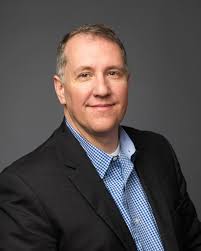I was blessed that someone messed up in the admissions office at Yale Law School a quarter century ago and that they let me in and even let me stay for three years. But I entered a very different world than not only the one I’d grown up in, in Brooklyn and on Staten Island, but also from where I had been also blessed to work for the two years before. I had been a paralegal in the Rackets Bureau in the Manhattan District Attorney’s Office, and at a time when New York was awash in crime.
I started as a paralegal in just about the peak year for homicides in New York’s entire history. I got to “second seat” (sit besides the lawyer trying the case, and hopefully help out) for a few trials, seeing voir dire several times and seeing a few juries resolve extremely involved criminal schemes through to unanimous verdicts.
However, when I started in law school I heard — a lot — how juries just do not understand; we need “blue ribbon” grand juries or trial juries to decide cases; issues are just too complex today for regular people — what we called them where I grew up — to decide sophisticated, and, at times, confusing disputes. Indeed, I recently attended a conference regarding patent litigation at a law school where a professor just oozed with contempt for juries and mocked even the idea that a jury of our peers could resolve an intricate and involved intellectual property dispute.
That all may make us super-smart lawyers feel better, that we can determine “involved” and “sophisticated” and “confusing” and “intricate” cases, unlike the regular people on juries who cannot.
But that’s wrong.
The current debased state of political discourse may make us question our system, and specific features of our legal heritage devised by the Founders — the Second Amendment (at least as understood by some) and the Electoral College, as two examples — are particularly criticized. But the jury system that we took from our English forebears and that we developed even more than they did (they barely have it anymore) works, and works fine, provided we actually get the case before the jury (an issue that a much more established trial lawyer than I has complained about and is trying to do something about).
The problem isn’t with the juries. The problem is with those “trial lawyers” and their criticism, perhaps coming up with an excuse as to why they never try their cases. It’s not because they’re afraid of trial (no, it’s not that; promise), but, they protest, because the jury “just won’t get it,” so we need to resolve, either as defendant or plaintiff, on terms which don’t make sense to us, and not accept the risk that should be part of a trial lawyer’s life.
I’ve had further good blessings in the law since that admissions officer let me into law school. Among the greatest is having tried many dozens of trials — before juries, judges, and arbitrators, on behalf of plaintiffs and defendants, in New York, around the country, and in international fora. I’ve consistently found that if the trial lawyer does her job, the jury will do their job, and do it well. Get your own trial experience and, I hope, you will have the same view.
A case in point for me is a recent eight-year international private equity dispute our firm handled. When we took over the case from another firm (Ivy League notes all over the place in their bios, not many references to how many trials they had) our clients were facing well over $800 million liability with suits against them in the United States, the Caribbean, Europe, India, and even Mauritius.
Years later, after we defeated a well-resourced adversary eight times in courts in four nations, all liability against our clients was gone. And, just last month, I had the privilege of presenting our case — now only as plaintiffs — to a state court jury. We had to present more than a decade of history and hundreds of pages of documents to the jury, over three weeks of jury selection and trial. I’m sure it wasn’t thrilling at all times, but my colleagues and I did our best to make some ruthless choices regarding what to present (and not), what cross to use, on which witness, which documents to emphasize, and so forth. In the end, we obtained for our clients an eight-digit jury award, representing a nearly $900 million swing in value since we were hired.
My colleagues did a phenomenal job, and they deserve credit (as does the judge who, another blessing, was a real trial judge, always trying to do what he thought was fair). But the jury deserves credit, too — they deliberated for days, over a weekend. The verdict they eventually rendered showed real consideration. Indeed, during deliberations my adversary and I shared how blessed we felt to be part of a system where regular people gave up their time to consider so carefully something that it seemed had nothing to do with them. Of course, we joked, we hoped that they carefully found a result in our favor; but, win or lose, we honestly noted that we thought they were dutiful.
Juries work. Before we complain that they don’t, let’s actually try some more cases to juries or even judges, or at least conduct hearings before arbitrators (who, like juries and judges presented with complicated disputes, also do their best to get it right). And let’s put the blame on winning or losing where it belongs: on ourselves and our colleagues.
 John Balestriere is an entrepreneurial trial lawyer who founded his firm after working as a prosecutor and litigator at a small firm. He is a partner at trial and investigations law firm Balestriere Fariello in New York, where he and his colleagues represent domestic and international clients in litigation, arbitration, appeals, and investigations. You can reach him by email at john.g.balestriere@balestrierefariello.com.
John Balestriere is an entrepreneurial trial lawyer who founded his firm after working as a prosecutor and litigator at a small firm. He is a partner at trial and investigations law firm Balestriere Fariello in New York, where he and his colleagues represent domestic and international clients in litigation, arbitration, appeals, and investigations. You can reach him by email at john.g.balestriere@balestrierefariello.com.














 Kathryn Rubino is a Senior Editor at Above the Law, and host of
Kathryn Rubino is a Senior Editor at Above the Law, and host of 


